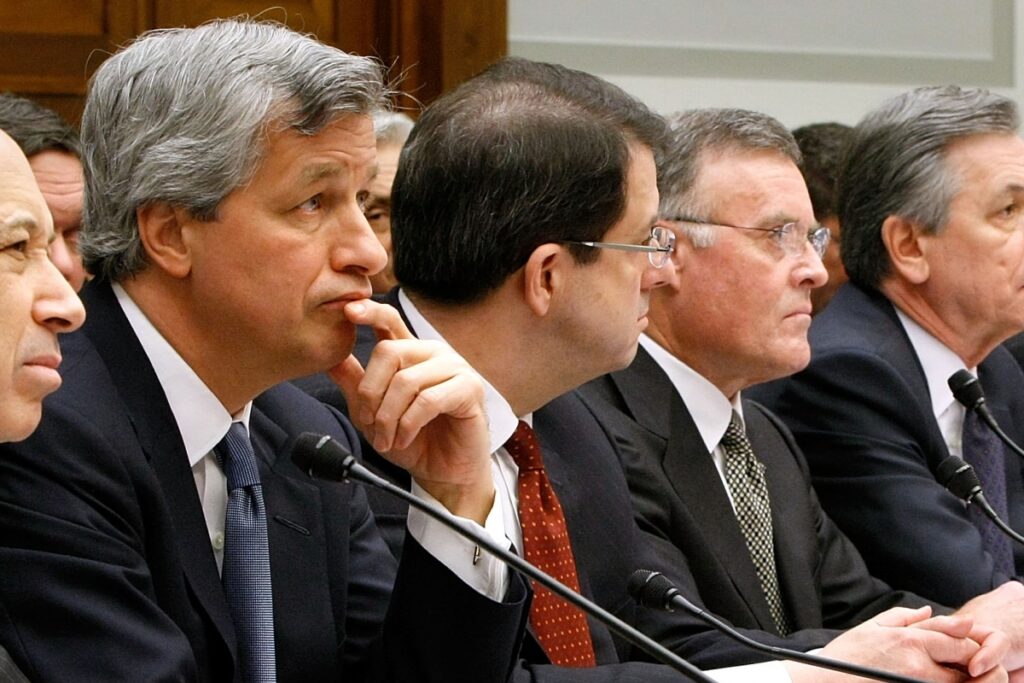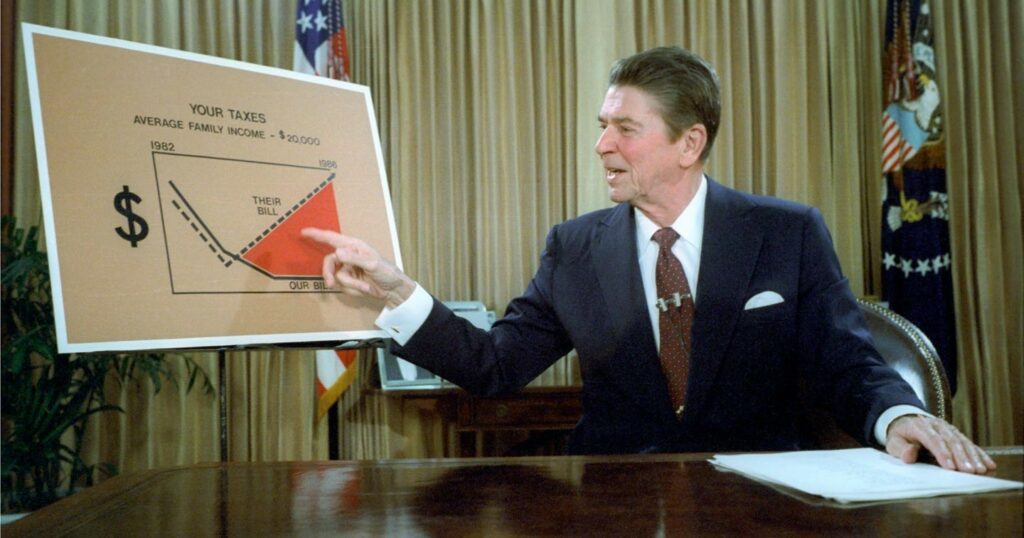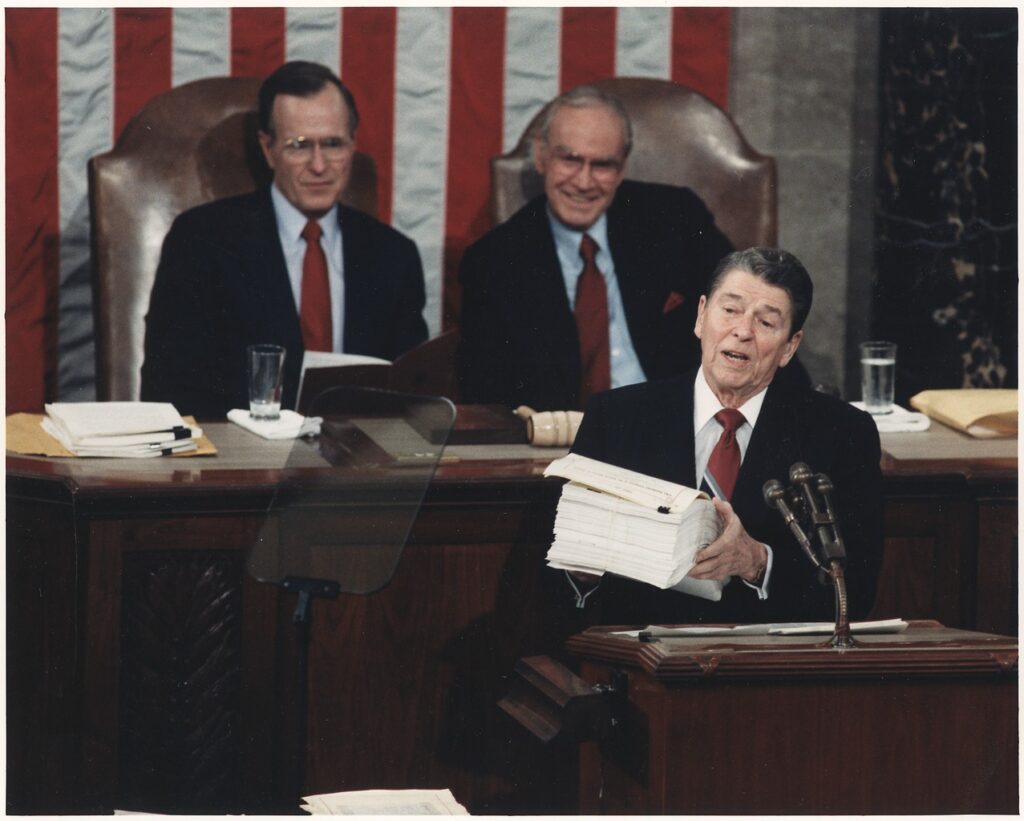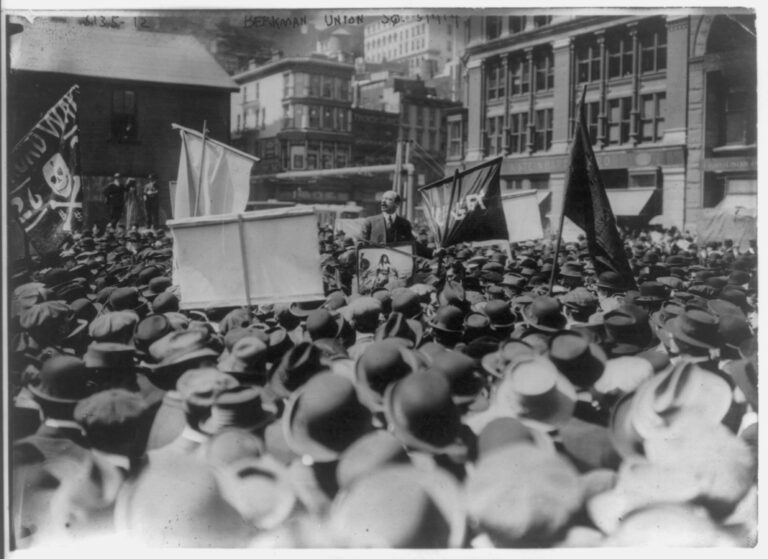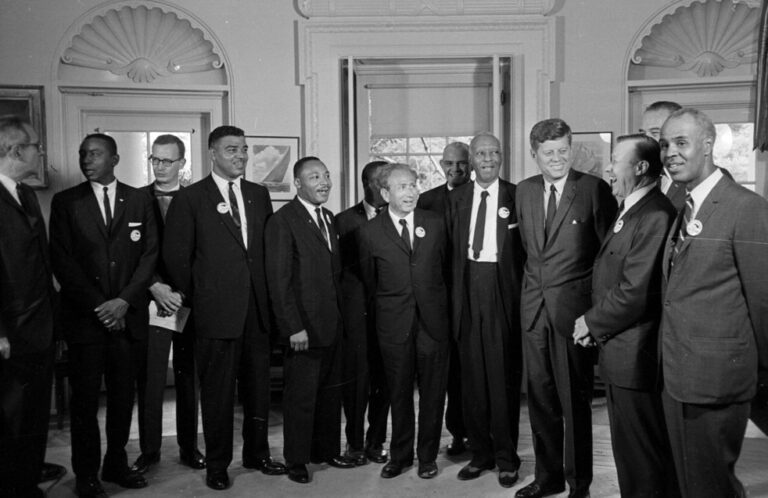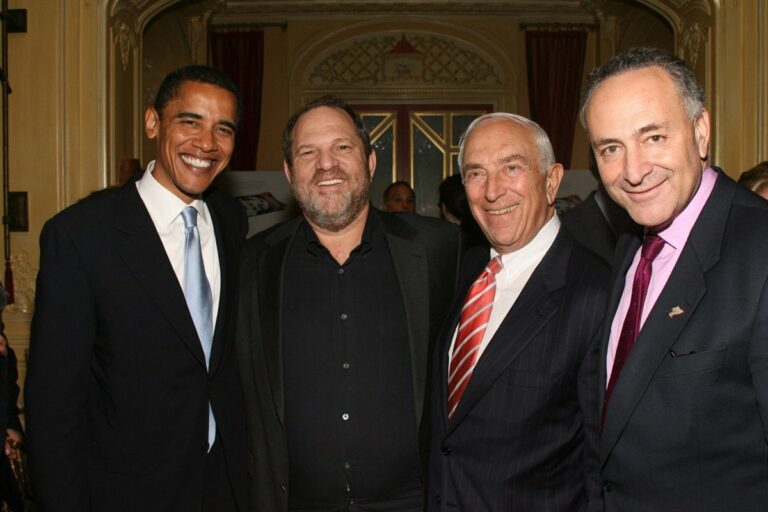This is an episode of Reality Asserts Itself, produced on June 9, 2014. Mr. Johnson says the idea that you were going to cut taxes massively and this was going to lead to a growth in revenue and close the deficit was silly.
PAUL JAY, SENIOR EDITOR, TRNN: Welcome to The Real News Network. I’m Paul Jay in Baltimore. And welcome to another episode of Reality Asserts Itself.
The role of finance in the world today is overpowering and joining us is a man who’s been on the inside and on the outside criticizing it, is Rob Johnson, who now joins us in the studio.
Thanks for joining us, Rob.
ROB JOHNSON, EXEC. DIRECTOR, INSTITUTE FOR NEW ECONOMIC THINKING: My pleasure.
JAY: So Rob is the president of the Institute for New Economic Thinking and a senior fellow and director of the Global Finance Project for the Franklin and Eleanor Roosevelt Institute in New York. He recently served on the United Nations commission of experts on international monetary reform under the chairmanship of Joseph Stiglitz.
In the past he’s had many different careers, one of which was he served as chief economist of the U.S. Senate Banking Committee. He was also senior economist of the U.S. Senate Budget Committee. Robert was also a managing director at Soros Fund Management, where he managed a global currency, bond, and equity portfolio, specializing in emerging markets. He’s also one of the men who broke the Bank of England.
Thanks for joining us.
JOHNSON: My pleasure.
JAY: At your high school, Martin Luther King was going to speak.
JOHNSON: Yeah, when it was–there was a petition circulated by some of the white elders in the school board and others to bar him from doing that, and they asked my father to sign that petition, which he refused to quite vehemently. And it wasn’t that he was a big fan of Martin Luther King, but he felt he lived in a democracy and not–. I remember he made quite a stink at–you know, they always talk about forbidden fruit. This attracted me. Boy, if this guy’s got these people that worked up, he must be interesting. So I wanted to learn all about him when I was in college.
JAY: What happened? Did he speak or not?
JOHNSON: Yes, he did. He spoke, and we went and stood on the lawn. It was jam-packed, but we stood on the lawn of the high school. They put speakers out on the lawn, and I listened to this tremendous lyrical voice coming through the speakers. This was a very passionate, powerful individual. And when I went to college at MIT, you know, you study a technical discipline, but you minor in a couple of things, and my minors were music and creative writing, and I studied the writings of Martin Luther King for four semesters as a result of the inspiration that his life represented.
JAY: Now, your bent, as you get to college, is in the sciences.
JOHNSON: Yeah. I had been involved very much in sailing.
JAY: Your dad was a sailor.
JOHNSON: My dad and mom were both sailors, and my dad was a big championship racing sailor. So I got interested in navigation, which inspires you to learn trigonometry. Got interested in meteorology, so the natural sciences of wind, weather, and coastline phenomena, calculus, aerodynamics, hydrodynamics, fluid mechanics, and all these things.
So I looked, as I got very involved in racing sailing, in sailing in a very high level. The greatest yacht designer when I was a boy was a man named Olin Stephens, and he had gone to MIT. And a man named John Bertrand, who eventually–this was in 1975–I sailed on his crew. In 1983, he was the Australian that won the Americas Cup away from the United States. I mean, he’s a formidable guy. But at an early stage, John had done his master’s at MIT. He told me, you ought to go there when you get out of high school.
JAY: And your dream was to build yachts.
JOHNSON: My dream was to design them. I wanted to be the next Olin Stephens. And I read all the biographies of all the great yacht designers and I’d studied that process–you know, C. A. Marchaj, who was a Polish theoretician, and he wrote a book on the nature of sailing design, naval architecture. And I’d read all of this stuff in high school. I loved that material.
JAY: So you do go to MIT, and you are doing hard sciences.
JOHNSON: Yes.
JAY: What happens?
JOHNSON: I ran into a man named Charles Kindleberger–Manias, Panics, and Crashes, the financial history of Western Europe. This was in the ’70s when you have the OPEC oil shocks. He introduced me to a man named Morris Adelman, who was the greatest petroleum economist, energy economist in the world at that time. I start working as a research assistant for Adelman, take his graduate course in energy economics. Kindleberger is like the pied piper with young people. He takes you to the Boston Symphony rehearsals, and he takes you out–how do I say?–tells war stories about when he worked in the Marshall Plan. He was just this kind of walking, magnetic political economist. And it starts opening the windows that there’s something going on in society, and that economics can shed light on it.
Takes me back to that cauldron of Detroit, the labor management issues and all of the turmoil and the politics. And I think Kindleberger–how do you say?–ignited a spark inside of me.
JAY: Now, those days of Detroit and that whole period, there’s a very vibrant left-wing movement. It’s mostly antiwar, but not entirely antiwar, in the sense that there’s a lot of left-wing economics, there’s a lot of talk about–Marx starts to get talked about again. Does that–as you make your shift from sciences to economics, are you at all influenced? Do you–.
JOHNSON: I didn’t have a kind of bee-line into the Marxist ideology or those works, but I was curious about everything. I was reading institutional economics about what are the big Wall Street law firms, what are the big banks. Thomas Ferguson, who I know appears on your network many times, was one teacher of mine when I was an undergraduate, and he fed my interest, ’cause he was like a walking encyclopedia. He has tremendous institutional knowledge of American political economy and history. And so he turned me on to various things. Marx comes up in that context, but I didn’t come with a kind of Marxist or Maoist literature somewhere at the center of my training, not by any means.
JAY: No [incompr.] not at the center. I’m just wondering, do you encounter it?
JOHNSON: Yeah, I encounter it, and I think the questions of class struggle–.
JAY: And what I’m trying to get at is that you’re very–I mean, just to jump ahead (we’re going to do the arc of all this), but you’re very, very critical now of the way the whole political economic system is working. I’m trying to get the evolution of your thinking. When does it start to click for you? Is it at–is it that early, or it’s later when the thing ain’t working?
JOHNSON: Well, I would say this. You know, I started in engineering, and then I add economics as a second degree. And the math works really good in the electrical engineering lab, and it doesn’t work quite so well when you’re looking at, say, time-series data on labor markets. So I’m thinking, these quantitative tools are interesting. I had a certain facility with mathematics and statistics, but they don’t seem like they perform as well in the social sciences like they do in the natural sciences.
Second dimension is, as I’ve said over and over, Detroit’s a cauldron. That doesn’t feel like a mechanical model to me. That feels like tension, bargaining, unrest, you know, putting out the fires of social tension. So I have a kind of what you might call rambling sociological movie of turmoil, not an equilibrium mechanical system in the movie in my mind in those days. And so whether Marx is talking about that or not doesn’t seem unreasonable to me.
I’m not really that familiar at that point even yet with, like, the ramifications of McCarthyism or any of these other tensions.
JAY: Yeah. How–I had an interview with Nader, Ralph Nader. We did a series like this. And I asked him what effect did the Cold War have on you in your thinking and action, and he said it intimidated us in a way that it blocked us from looking at systemic solutions.
JOHNSON: Sure.
JAY: And I’m wondering, in studying economics in that time, if it doesn’t have somewhat the same effect, that some of the kind of underlying questions, the whole culture, the pressure of the culture would be against asking those kinds of questions.
JOHNSON: Well, there’s a very interesting portrait. A man named Lorie Tarshis was a student of John Maynard Keynes. He came to America first at Tufts University and then at Stanford. And he wrote a textbook called The Elements of Economics. And subsequently I believe William Buckley wrote a book where he mobilized a lot of people to treat this man like this textbook was what you might call a seedcorn of communism. And this book, which was selling very well, and people were very excited about Keynesianomics, got essentially banned. Paul Samuelson was, a couple of years later, writing his Foundations of Economic Analysis, has given interviews to people like David Colander. I think he was at Middlebury College or he’s at some university in Vermont or New Hampshire–I can’t remember right now off the top of my head. But David Colander studied what had happened to Tarshis, and he interviewed Samuelson about it. And Samuelson said, at some level, not unlike at the time of the Thirty Years’ War, the monks talk in code; I kept it all in math. Samuelson didn’t feel like he was selling out Keynes; he felt like he was preserving a pathway for people to understand Keynes. But he had to do it in that technocratic, mathematical language, ’cause Tarshis had set an example in that kind of pre-McCarthy era of what can happen to a scholar.
JAY: In ’84 you go to Princeton and you do your PhD.
JOHNSON: I went there in 1980.
JAY: Eighty. You graduate in ’84.
JOHNSON: Yeah, I left there in ’84 to go to the Fed, and I was at Princeton.
JAY: At Princeton you’re studying economics.
JOHNSON: I do a PhD in economics. That’s right.
JAY: You’ve now moved from the hard sciences [crosstalk] economics.
JOHNSON: That’s right. That’s right. And in Princeton, a very, very mathematical department–lots of the great contributions to things like game theory came from there–I sort of hung out in the history department up at the Institute for Advanced Studies, ’cause people like Albert Hirschman, Marcello de Cecco were at the Institute for Advanced Studies, Axel Leijonhufvud, who was a heterodox economist. Then the History Department had people like Carl Schorske, David Abraham, Arno Mayer teaching what I’ll call from 1820 to the present European history. That felt a lot more like Detroit than the game theory did for me.
JAY: And you always feel connected to Detroit as you’re studying economics.
JOHNSON: Yeah. I’d never lose sight of it, looking at the bankruptcy there and attempts to reform pensions and what’s happened in that state.
JAY: We’re going to talk more in detail about your work on that.
JOHNSON: And I just never lose sight of it.
JAY: What was your thesis at Princeton?
JOHNSON: It was about the implications of the Gramm-Rudman-Hollings legislation that had not been passed yet, but it was–.
JAY: Explain what that’s about.
JOHNSON: It was about reducing the budget deficits in the aftermath of the Reagan tax cuts, called Kemp-Roth Tax Cuts. And that tax cut had led to a very big jump in interest rates adjusted for inflation, a big jump in the dollar, started the rise in the dollar, really started the–or what you might call accelerated the hollowing out of the manufacturing sector in the Midwest. And I was looking at the implications of putting, how you say, those deficits back onto a smaller trajectory over time.
JAY: So this is during Reagan.
JOHNSON: Yes.
JAY: Your father supported Reagan?
JOHNSON: I’m trying to remember. Reagan ran against Carter. I’m quite sure he voted for Reagan, ’cause he was very disappointed in Jimmy Carter, and the so-called “malaise speech” he felt was very harmful.
JAY: And what about yourself, your feelings towards Reagan?
JOHNSON: I’m trying to remember. I don’t remember liking Ronald Reagan very much. I thought he was nostalgic about an America that never was but certainly wasn’t going to be. So I didn’t have a strong–.
JAY: What did you think of his economic policies?
JOHNSON: I thought they were crazy. I thought that what H. W. Bush called “voodoo economics”–the idea that you were going to cut taxes massively and this was going to lead to a growth in revenue and close the deficit because the responsiveness of the supply side would be so vibrant seemed to me kind of silly. And when I went to work with Pete Domenici on the Senate Budget Committee, who was a Republican of that noblesse oblige variety, that centrist Republican, we had lots of negotiations with OMB and the White House suggesting that that economics was fiction.
JAY: And what did you conclude was behind that fictional economics?
JOHNSON: Well, I think it was a political economic argument that powerful, wealthy people that had backed Reagan wanted their taxes lower. And on the other side, people like David Stockman, who I considered to be ideologically quite pure at the time, in other words a public servant, not somebody’s agent for power, found out that he couldn’t cut the defense budget like he would cut the civilian budget to close the deficits. He was trying to reduce the size of government, almost a libertarian action. He found out that power reared its head on side of the Pentagon, and power reared its head on the side of cutting taxes for particularly the most well-off.
JAY: Okay. So we’re going to pick up the story with Rob as he moves to Congress, working on the Banking Committee and the Budget Committee, and gets a close look at the inner workings of the convergence of big money and big politics. So please join us for our series of interviews with Rob Johnson on Reality Asserts Itself on The Real News Network.
Never miss another story
Subscribe to theAnalysis.news – Newsletter
“Robert A. Johnson is the Executive Director of the Institute for New Economic Thinking and regularly contributes to NewDeal 2.0 with his “FinanceSeer Column.” He also formerly traded currency on Wall Street under George Soros.”




